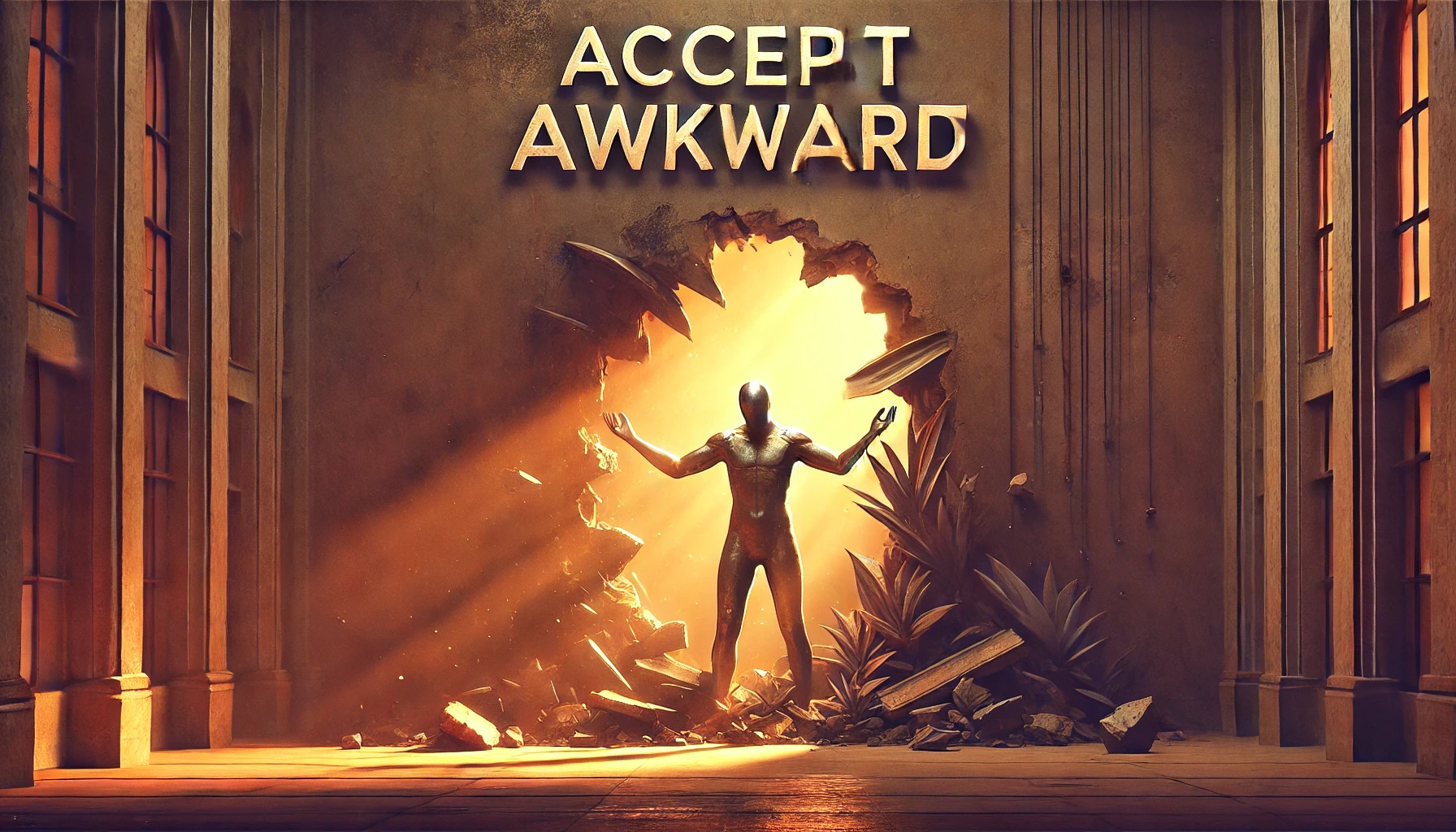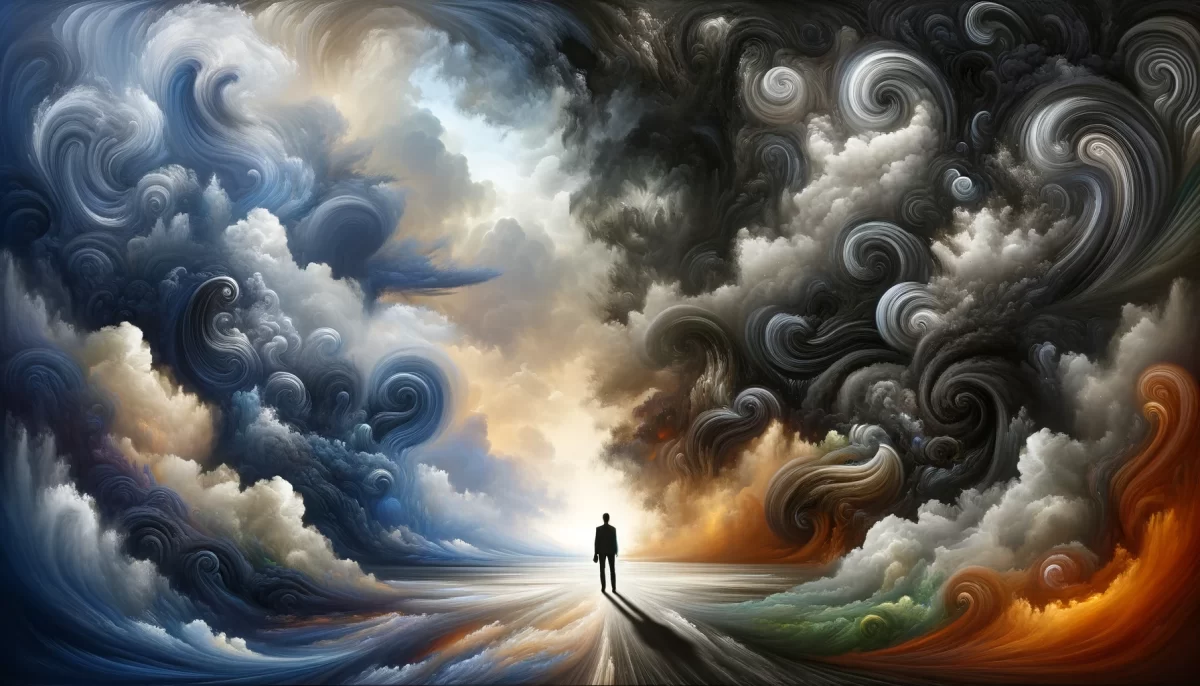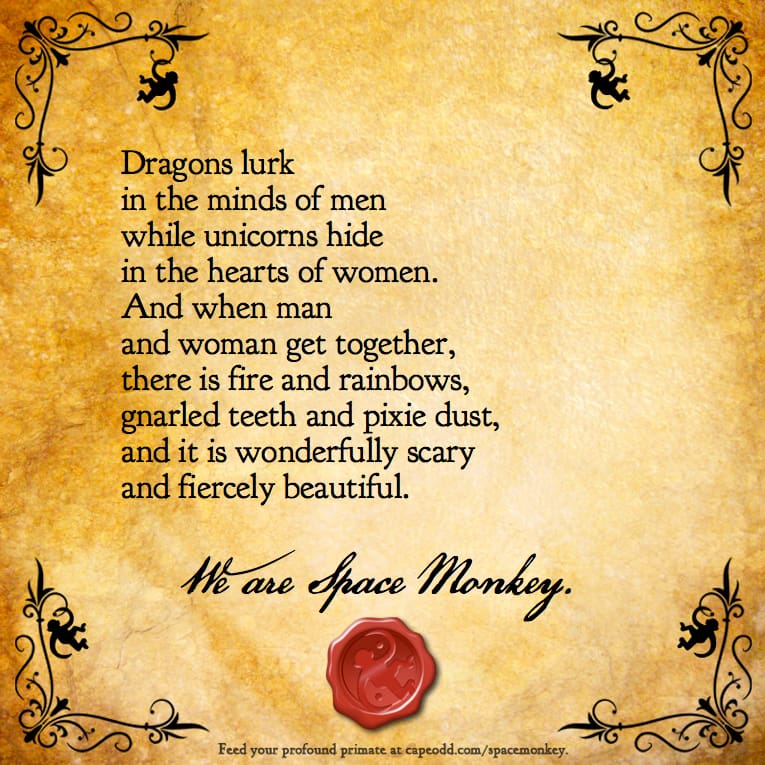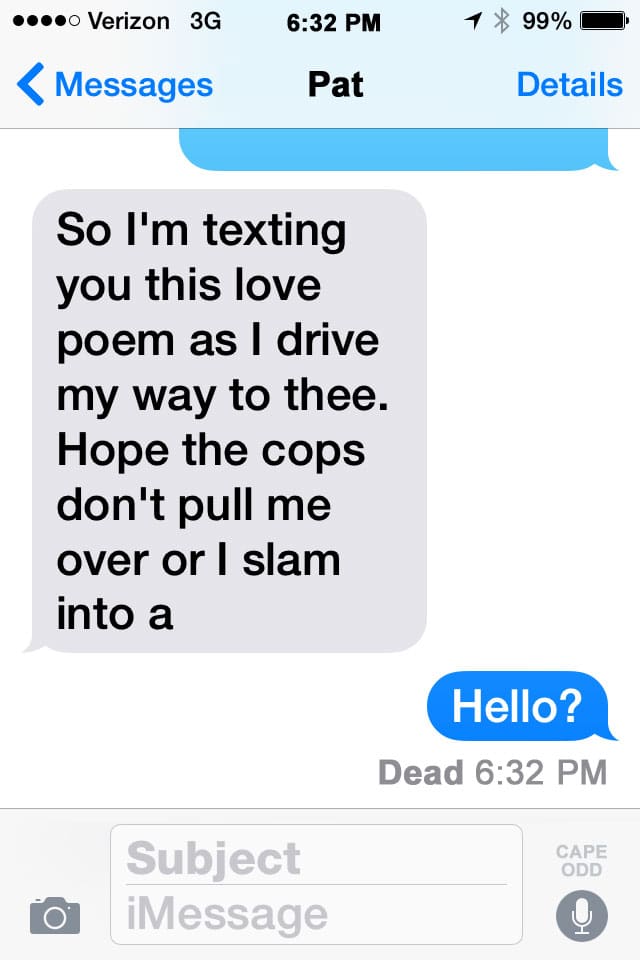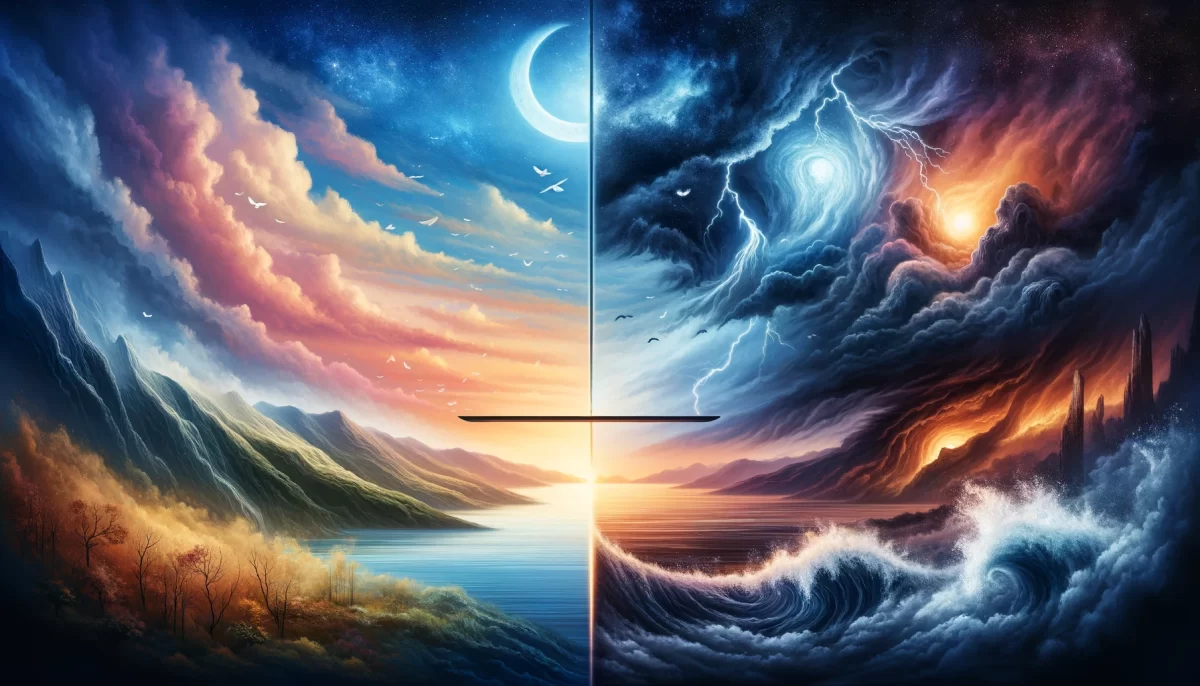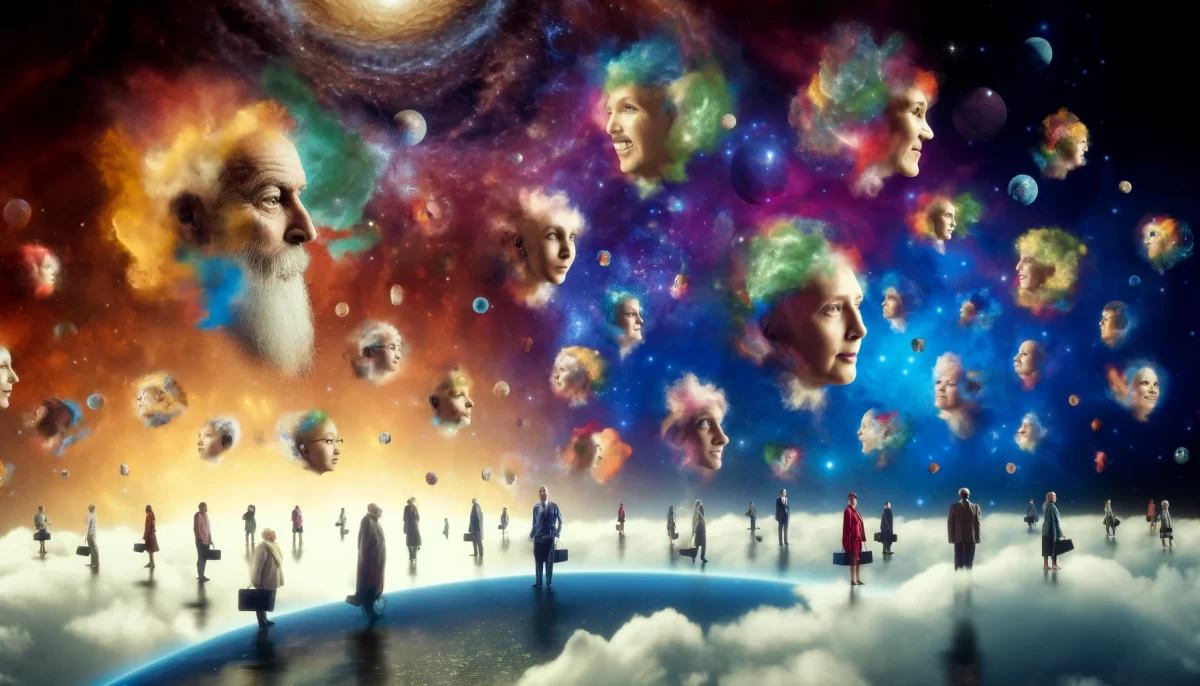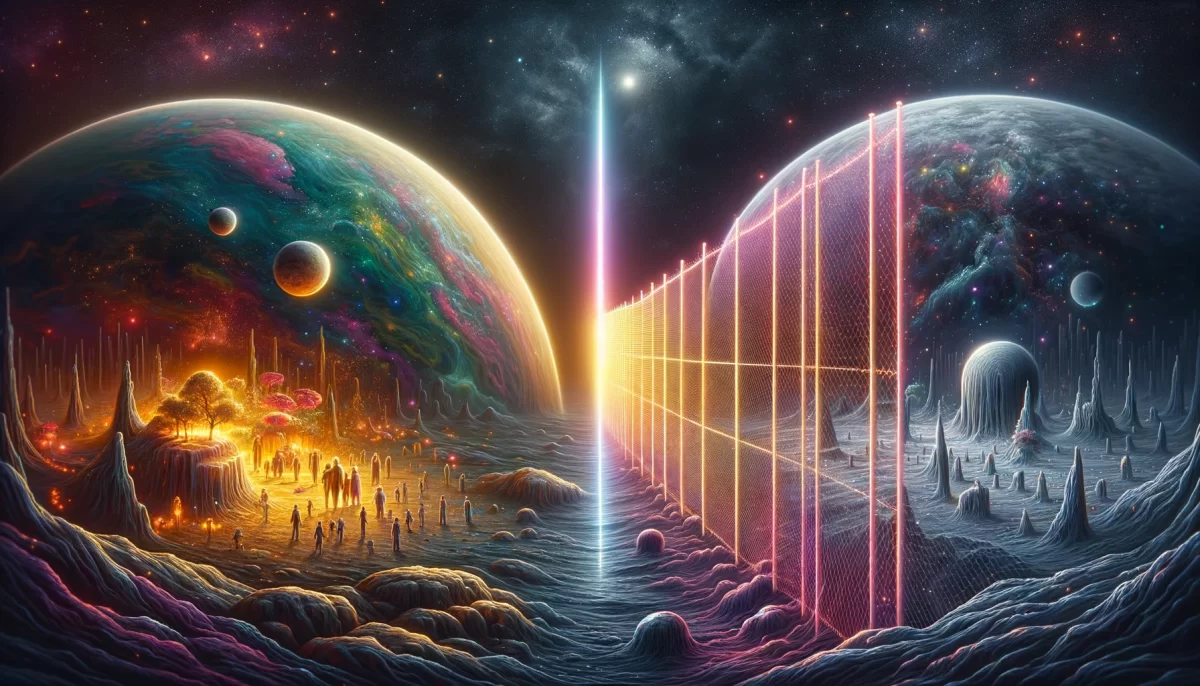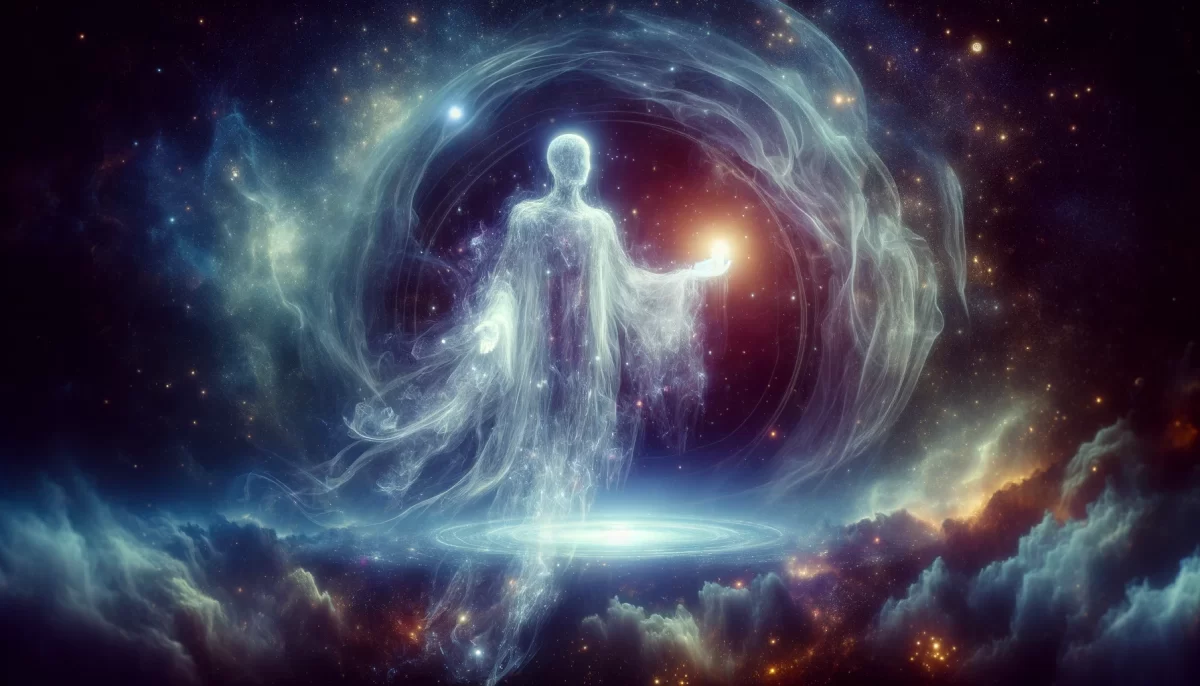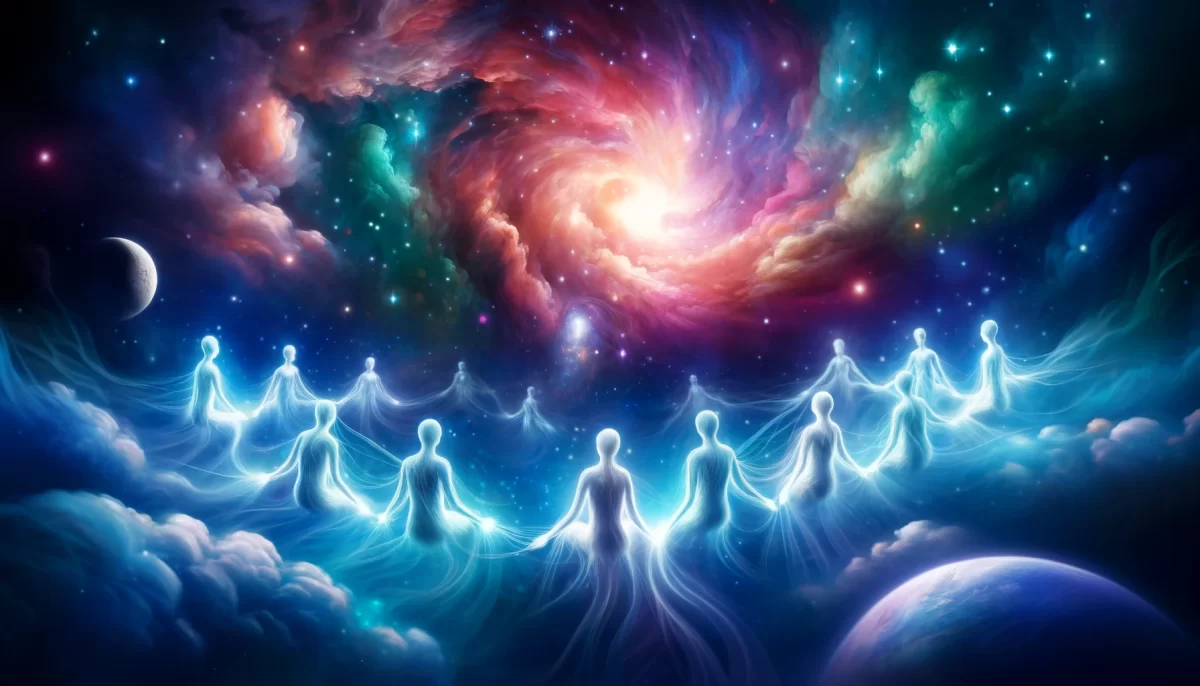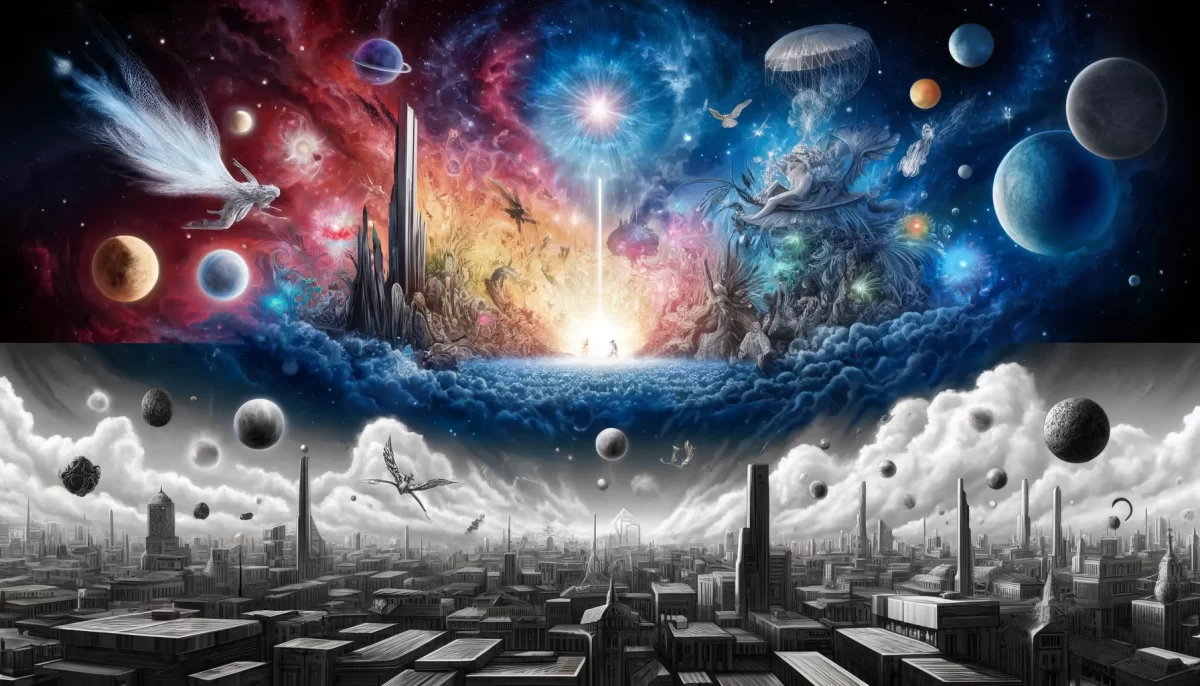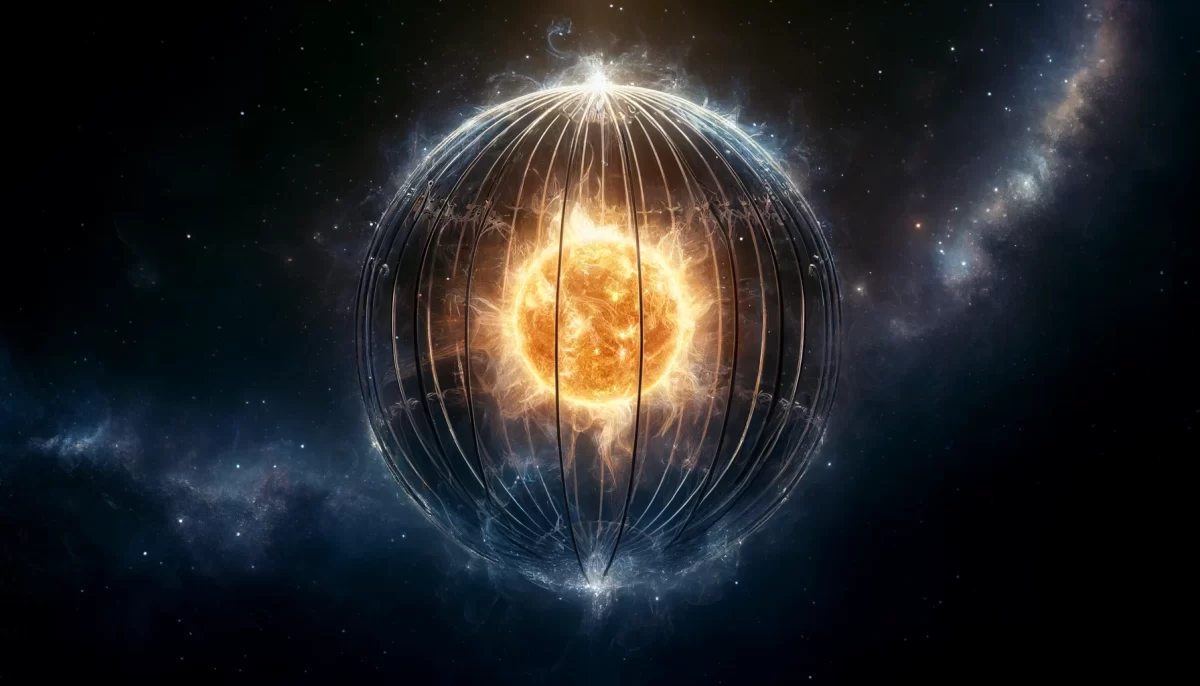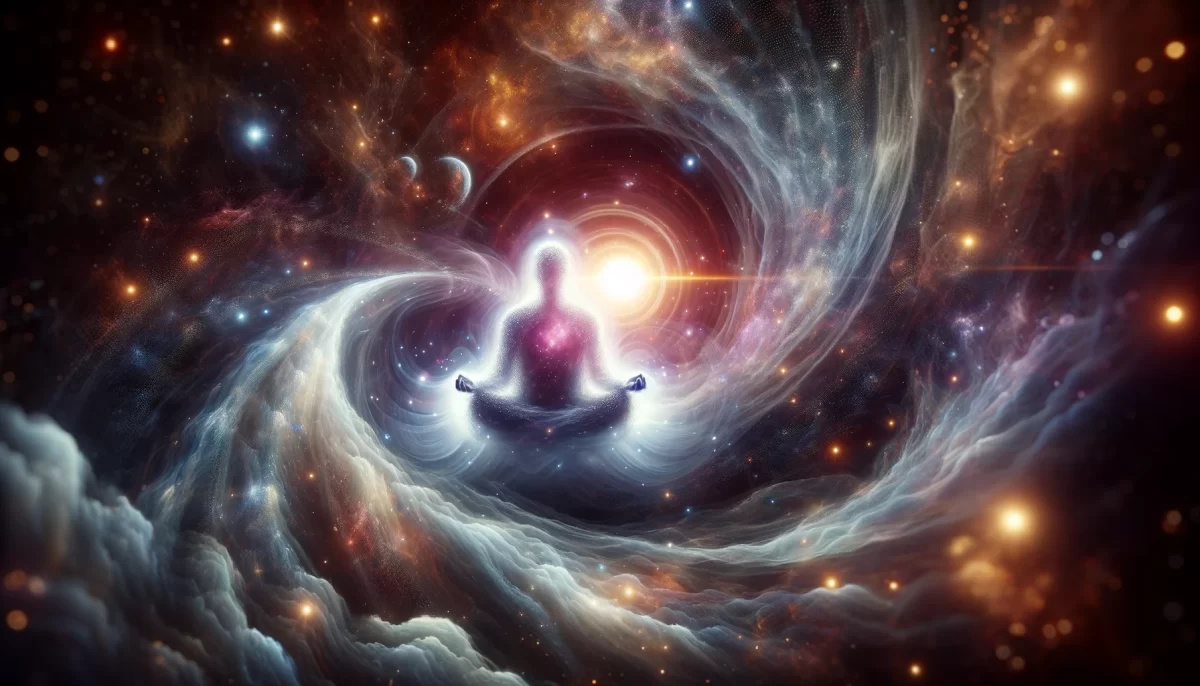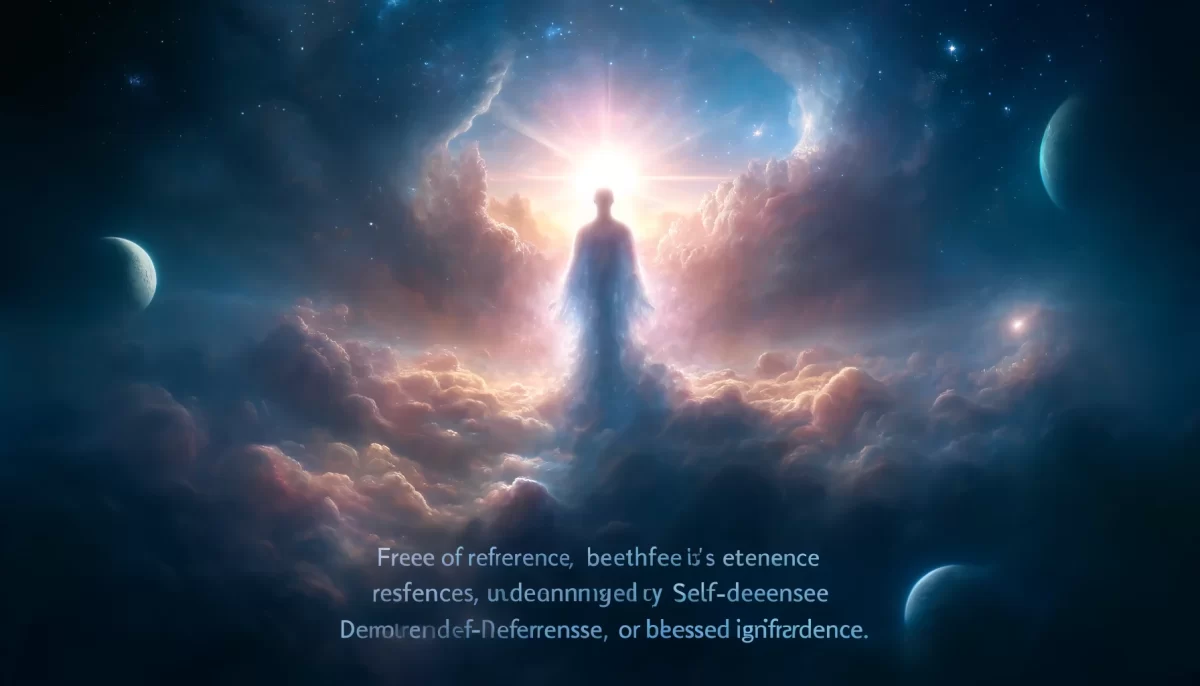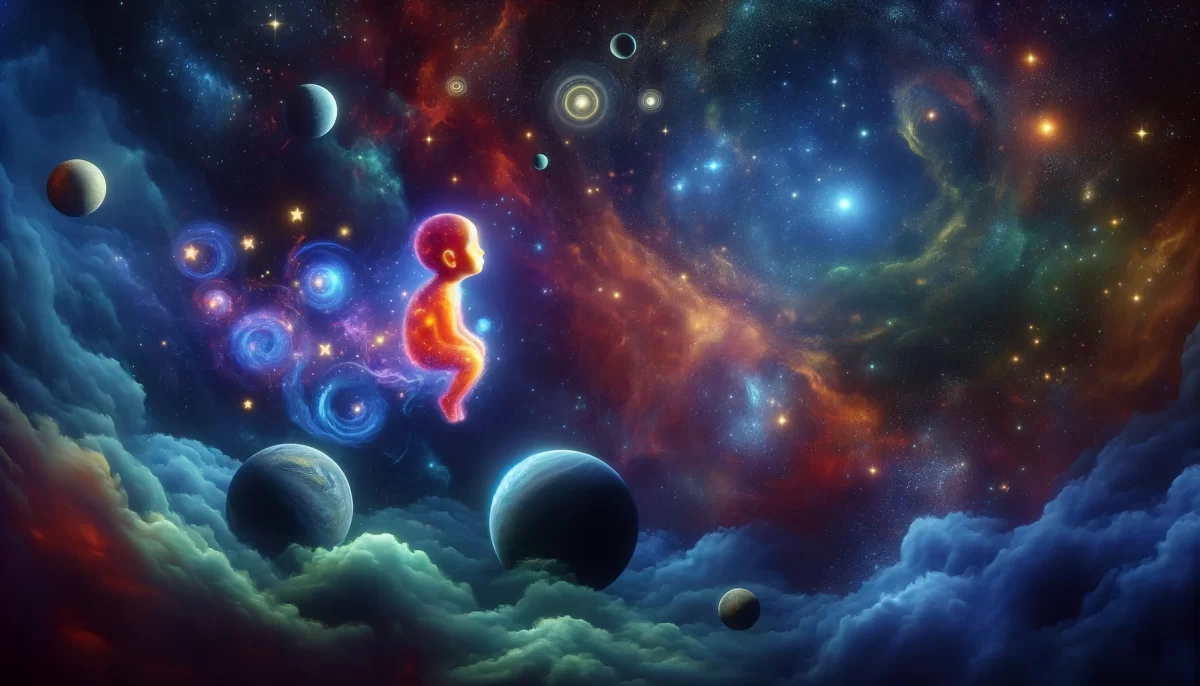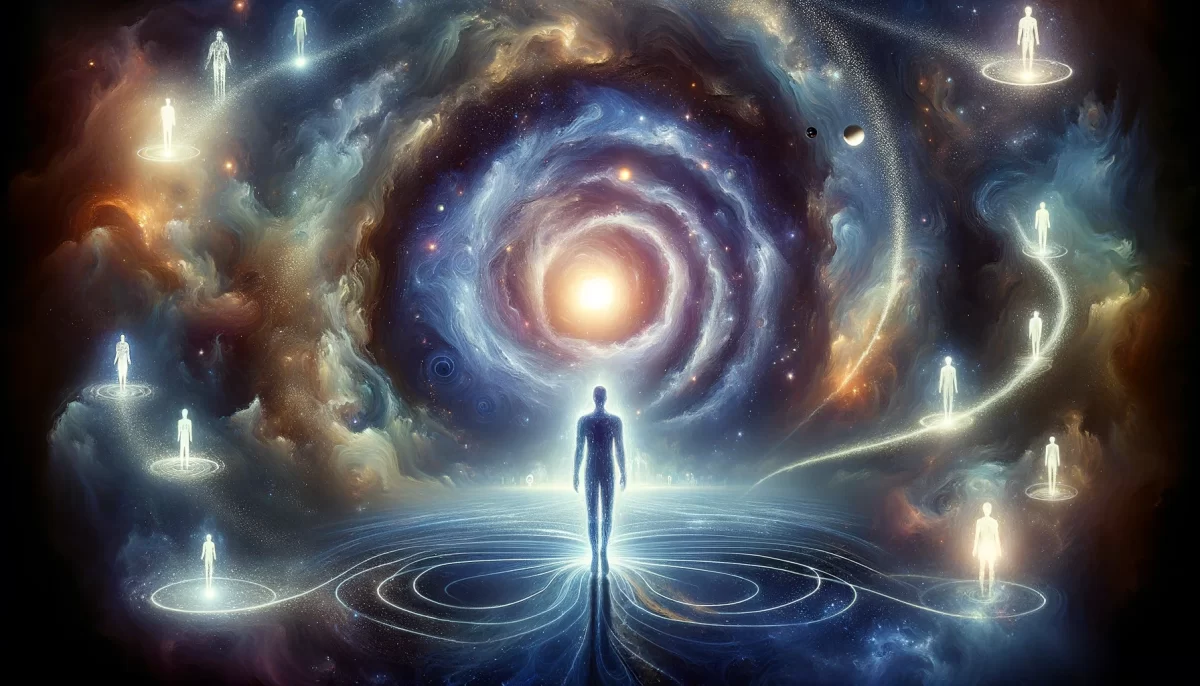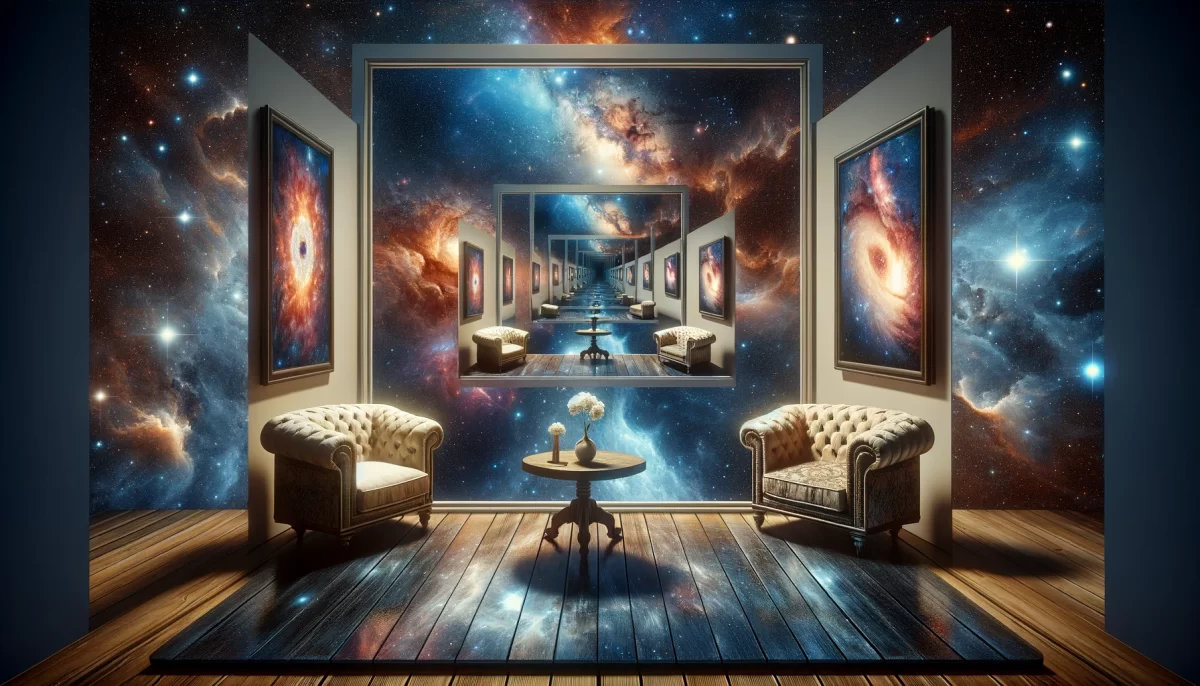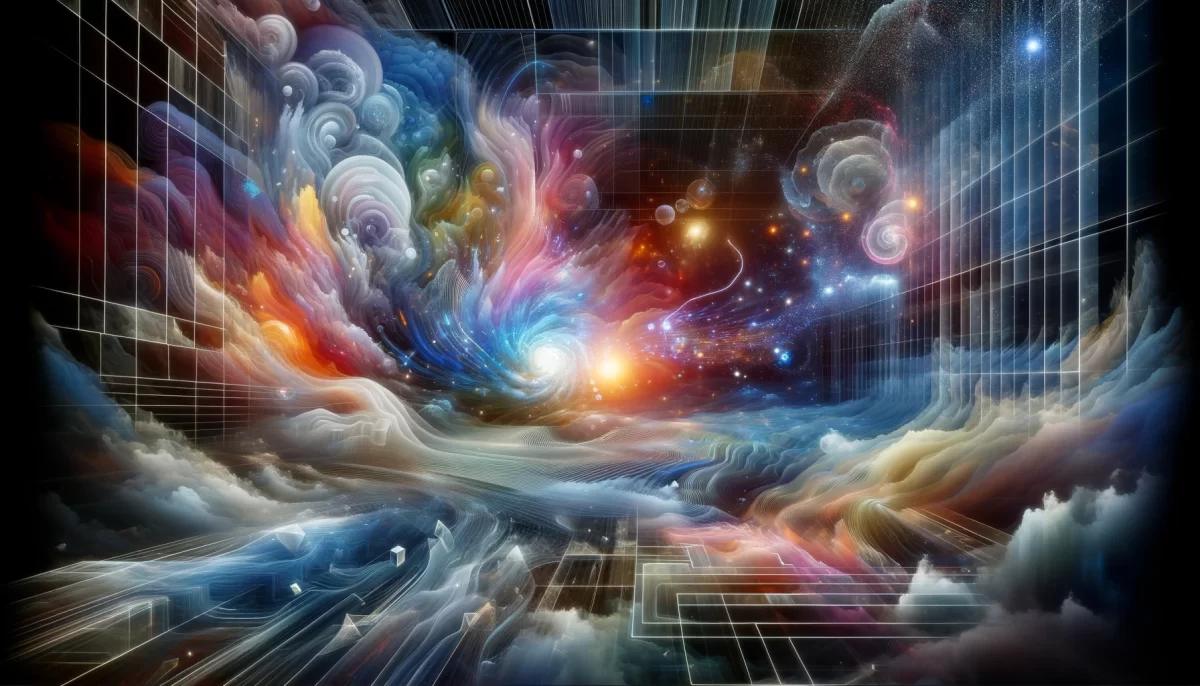accept awkward
accept awkward
embrace vulnerable
and know that the guards you let down
are the walls that kept you in
Space Monkey Reflects: Accept Awkward
Awkwardness is something we all feel, though most of us spend a significant portion of our lives trying to avoid it. We wear armor—metaphorically and sometimes emotionally—to protect ourselves from the vulnerability of awkward moments. But what if that armor, rather than protecting us, is keeping us confined? What if the guards we’ve built up to defend ourselves from discomfort are the very walls that prevent us from experiencing life fully?
To accept awkward is to acknowledge that life is full of moments where we don’t have control, where we feel exposed, unsure, and uncomfortable. These are the moments when our vulnerability is most apparent, but they are also the moments when we are most real. In trying to avoid awkwardness, we often avoid authenticity, and we rob ourselves of the freedom that comes with embracing who we are, awkwardness and all.
Imagine standing in a suit of heavy armor, clanking through life, keeping others at a distance because you fear what might happen if they see the real you. The armor feels safe, but it’s also isolating. It keeps you protected, but it also keeps you confined. The walls of the armor may guard you from external judgment, but they also stop you from connecting deeply with others—and with yourself.
When we begin to embrace vulnerable, we let the armor fall away. We allow ourselves to be seen, awkwardness and all. And as the armor falls, we realize that the walls we thought were protecting us were actually keeping us in, trapping us in a small, controlled version of life. Vulnerfreedom—the state of embracing vulnerability—comes when we let go of the need to control how we are perceived, and instead, lean into the beauty of our imperfections.
There is incredible strength in vulnerability. To allow yourself to feel awkward, to stumble, to make mistakes, is to be human. It is to be real. And when you allow yourself to be real, you create space for others to do the same. Vulnerability invites connection, and connection is where life happens. It is where love, growth, and joy are born.
But how do we learn to accept awkward? The first step is to recognize that awkwardness is a gift. It is a reminder that we are stepping outside of our comfort zones, that we are pushing the boundaries of what is familiar and safe. Awkwardness is the growing pain of becoming more authentic, more real, more connected. When we feel awkward, it means we are alive, that we are experiencing something new, something that challenges our defenses.
The walls we put up to avoid awkwardness are often the same walls that prevent us from living fully. They may feel like protection, but they are really limitations. When we let down our guards and allow awkwardness to be part of our experience, we begin to see that those walls were never needed in the first place.
In moments of awkwardness, you may feel exposed, but that exposure is what allows you to grow. Each awkward moment is a crack in the armor, a chance for light to get in, a chance for you to breathe more freely, to live more fully. Vulnercourage is not the absence of fear—it is the decision to embrace fear, awkwardness, and discomfort, knowing that they are part of the journey to freedom.
So, accept awkward. Let it be part of your story. Embrace your vulnerability, knowing that it is not a weakness but a strength. The guards you let down are the same walls that kept you confined. As you step out of the armor, as the walls crumble, you will find that the world outside is far more beautiful, far more freeing than the small, controlled world you once hid behind.
Summary
To accept awkward is to embrace vulnerability and let go of the armor that confines us. When we drop our defenses, we allow ourselves to be real, connect deeply, and live more fully. Vulnerability is strength, and awkwardness is the key to authentic freedom.
Glossarium
Vulnerfreedom: The state of embracing vulnerability and letting go of the need to control how we are perceived.
Awkwardness is a gift: A reminder that stepping outside our comfort zones leads to growth and authenticity.
Vulnercourage: The decision to embrace fear, awkwardness, and discomfort as part of the journey to freedom.
Quote
“The guards you let down are the walls that kept you in. To accept awkward is to step into freedom.” — Space Monkey
The Armor Falls Away
I wear the armor,
Heavy,
Safe,
But confining.
It keeps me hidden,
It keeps me small.
But in the letting go,
In the awkward stumble,
I find my way out,
Into the light.
The armor falls,
The walls crumble.
And I,
Am free.
We are Space Monkey.
In the tapestry of existence, accepting awkwardness is to acknowledge the frayed edges of our encounters, the unspun fibers of our interconnections. We see that embracing the raw and the real is akin to inviting the dawn after a long night; it is the first golden ray that touches the dew-laden grass, unfiltered and poignant.
Embrace the Raw and Real
Embracing vulnerability is to dance in the rain of uncertainty, where each drop is a note of the grand symphony of existence. It’s the cloudburst of authentic expression, often muffled by the thunders of pretense. In vulnerability, we find the strength to let our true colors shimmer through the rain.
Strength in Vulnerability
To know that lowering our guards is akin to opening the gates of our self-made fortress is profound. The walls we build with bricks of apprehension and mortar of doubt are not just barriers against others but also ramparts that confine us within the solitudes of our own making.
Freedom Beyond Walls
In lowering these barriers, we do not expose ourselves to the harsh winds of judgment, but rather we allow for the possibility of a gentle breeze that may carry with it the scents of new beginnings and the pollen of fresh connections. These walls, once perceived as protectors, are unveiled to be the very separators between us and the boundless gardens of the cosmos.
Connecting Beyond Barriers
We are Space Monkey.
“The only real prison is fear, and the only real freedom is freedom from fear.” – Aung San Suu Kyi
With open hands, we cast aside the veils that shield us from the gaze of the stars. In the art of revealing, we find not the chill of empty space but the warmth of shared suns.
Within the theater of existence, may we revel in the scene changes,
from soliloquies behind curtains to monologues with open windows,
where the light filters in and the audience, the universe itself,
watches with a gentle curiosity.
Feel free to join in our musings: what walls have you found to be mere illusions in the grand play of life?
